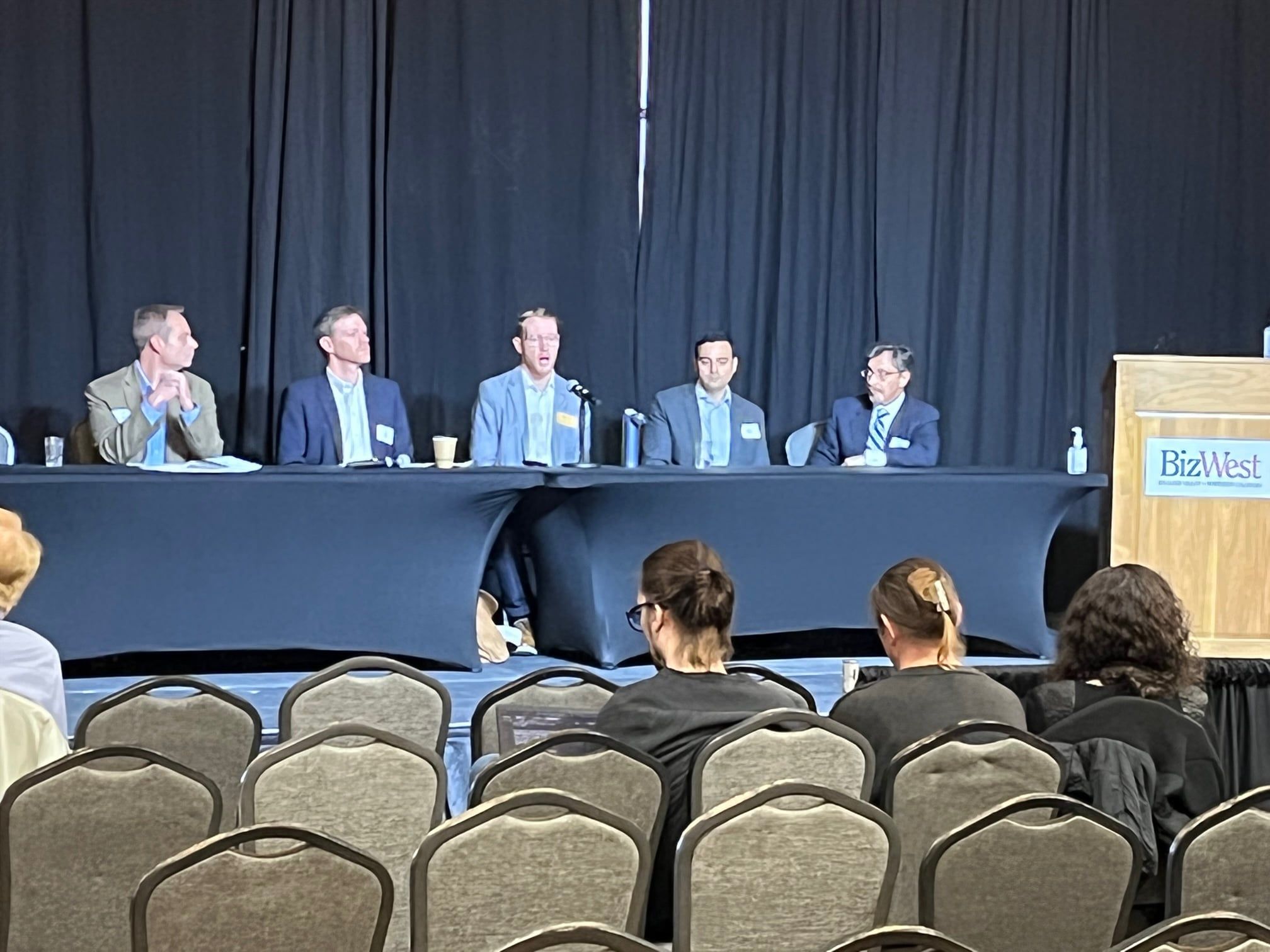Net Zero Cities: Climate action requires small, large business sustainability

Editor’s note: The name of the speaker from E Source was incorrect in the original version of this report.
LOVELAND — Driving reductions in carbon emissions necessary to reduce climate impacts may have been jumpstarted by electrical utilities decarbonizing the grid, but reaching climate targets will require sustainability practices by both small and large businesses.
A Climate Action Bootcamp panel at BizWest’s Net Zero Cities event held Wednesday at the Ranch in Loveland explored practical strategies for climate action that businesses of all sizes could use to assist in the effort.
SPONSORED CONTENT
People Powered: Preparing Longmont Businesses for Economic Success
Longmont Chamber and FNBO present People Powered on April 24, 2024, aiming to inform business owners about workforce development, housing, and transportation issues.
The panel, moderated by Rudy Verner, partner at Boulder law firm Berg Hill Greenleaf Ruscitti, took on the question: What can individual companies do to reduce greenhouse gases and influence climate policy in the country?
Frank Bruno, CEO of Via Mobility Services in Boulder, said — as did all the panelists — that setting an example and starting at home is important to the climate strategy.
“Even though we’re a nonprofit, we have to be efficient in order to reinvest in our equipment, our employees,” he said. “Our principle is innovation.”
Under that principle, Via Mobility is investing in electric vehicles, hydrogen technologies, renewable natural gas, right-sizing vehicles and other strategies in order to drive efficiency.
“We envision everything we’re doing as being part of the regional economy,” he said.
David Ivan, chief operating officer of Vestas North America, the wind-power company with operations in Windsor and Brighton that was recently named as “most sustainable company in the world,” said “every little bit helps” when working toward sustainability. That means having every member of the staff pulling in the same direction.
“The next generation, these guys want purpose as well as a paycheck,” he said about the workforce that companies large and small will recruit. “These [sustainability efforts] provide an incentive for people to join companies that are taking action,” he said.
“There’s a need to change the trajectory of global warming. There is no argument. Leaning in on sustainability now will allow for value creation in the future.”
For Vestas, a strategy was developed in 2020 that included:
- Get your baselines established. You’ve got to be able to measure what you’re doing.
- Set targets.
- Create projects that are achievable by you and your customers.
- Maintain a cross-functional focus throughout the organization.
- Establish “heavy leadership” on the strategy.
- Communicate and maintain transparency.
Vestas, a worldwide company, plans to be carbon neutral by 2030, he said. In Colorado, one project the company is developing is a solar and wind system, backed up by battery storage, to power the tower manufacturing facility in Pueblo that is now owned by a contract company. The project will have a three-year payback, he said.
Likewise, PACE Boulder is looking to set an example and help its partner agencies find sustainable strategies. PACE, which stands for Partners for a Clean Environment, said the climate change impacts are undeniable.
“Boulder County has had four wildfires just since the Marshall Fire,” which occurred in late December, said Zac Swank, environmental health lead for the agency.
“In every new report that comes out, it says it [climate change] is happening faster and that’s the trend. Reductions alone won’t get us there; we have to draw carbon out of the atmosphere as well. The longer we take to take action, the more drastic that action needs to be,” he said.
He encouraged companies to set science-based targets, track and report progress.
Michael Tulaney, engagement manager for E Source, a company that helps utilities focus on data to develop more sustainable practices, said the COVID-19 pandemic resulted in a bonus reduction in generation of greenhouse gases, because workers were not traveling to offices or traveling for business. The challenge is figuring out how to maintain those lower levels of emissions.
“What can we learn from that to move forward,” he asked.
It starts, he said, with being aware of the personal carbon footprint. To that end, E Source is helping its employees determine the carbon impact of their homes and lives using carbon auditing techniques.
“Policy starts at the dinner table,” he said.
Editor’s note: The name of the speaker from E Source was incorrect in the original version of this report.
LOVELAND — Driving reductions in carbon emissions necessary to reduce climate impacts may have been jumpstarted by electrical utilities decarbonizing the grid, but reaching climate targets will require sustainability practices by both small and large businesses.
A Climate Action Bootcamp panel at BizWest’s Net Zero Cities event held Wednesday at the Ranch in Loveland explored practical strategies for climate action that businesses of all sizes could use to assist in the effort.
The panel, moderated by Rudy Verner, partner at Boulder law firm…
THIS ARTICLE IS FOR SUBSCRIBERS ONLY
Continue reading for less than $3 per week!
Get a month of award-winning local business news, trends and insights
Access award-winning content today!


